
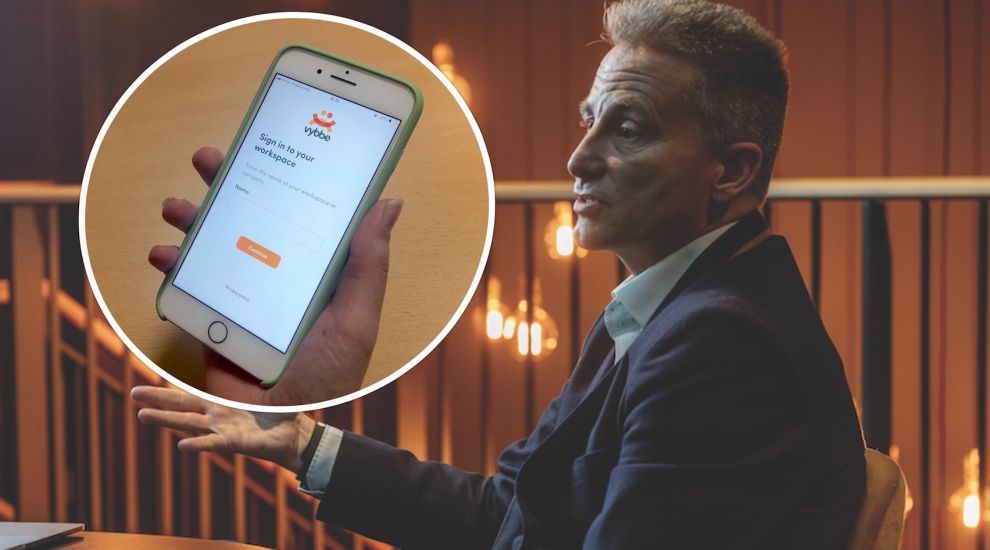

What’s the vibe in your office like? A local tech guru has come up with an app to find out just that – by getting colleagues to rate each other.
Not really getting on with your team (or just one of them) is very common piece of feedback from those who move on. In a ferociously tight labour market, companies really don’t want that.
As ever in today’s world, potential solutions for employers lie with technology – which is where a Jersey-based tech company, Vybbe, comes in.
The app-based concept aims to make it super easy for staff to feedback on the current ‘vybbe’ in their business, and the people who work there. Over time, that data builds up an accurate picture of the connections which make a place or work somewhere that people want to stay…or go.
Express went to make a connection with Vybbe’s founder, Julian Box, and asked him where the idea came from...
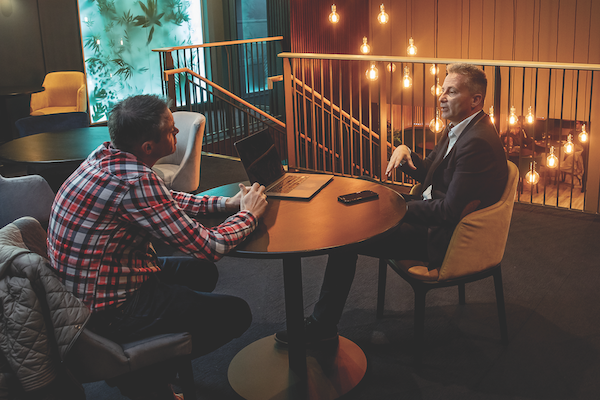
Pictured: Julian Box is the founder of Vybbe.
Julian Box: So, in my last position, and current role as well, actually, I focussed on trying to improve the general wellbeing of staff. It's a very demanding space, when you're a fast-growing tech company.
When we moved into the new offices on Grenville Street, I felt that the physical location had been, dealt with, I think we've got a great space, but it still didn't deal with the rest of what made a great team, how do I improve performance and so forth. So, I started thinking about how to do that and I started to also engage with my role as a governor at school, and noticed the way they were trying to engage with the students and stuff, I thought, “That's quite interesting.”
So, I ended up asking Carl Howarth at JCG whether he would come and help me try and come up with a way to actually engage better with the staff. So, that was the original thought process, and through multiple iterations, we ended up focussing more and more on how people felt - whether they belonged in the business - and then did research about what made people think that they belonged at that business.
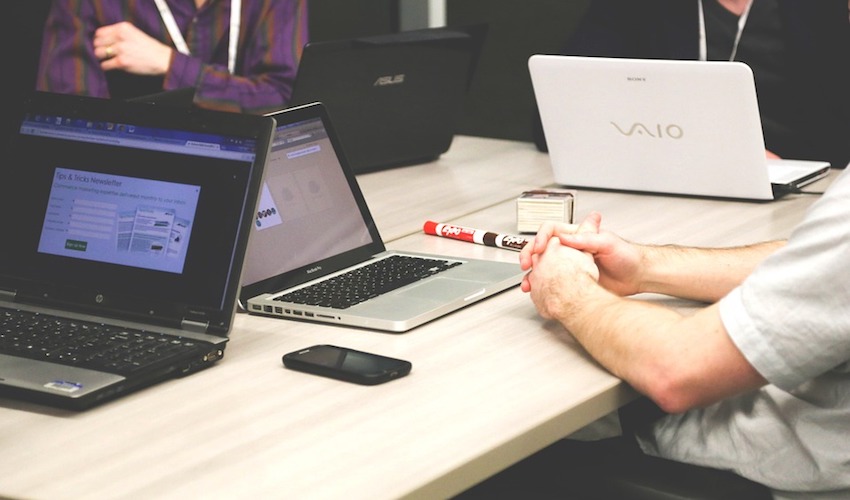
Pictured: Vybbe aims to help employees make connections with each other.
It ultimately comes down to, if you look at all the research, there is a core fundamental requirement that humans have, which is that they do want to belong and they do want to connect. If you haven't got the right connections within the workplace, then everything you build on top of it actually doesn't deliver for you, and there's lots and lots of research that will actually back that up.
In 2018, 50 billion was spent worldwide, but research has shown that very few companies got any return on that investment to improve wellbeing and happiness.
When you go to a lot of these seminars around happiness and wellbeing, it focuses on what the company can do for the employee - which is of course very, very important - but what it doesn't do is focus at all on how people actually get on with each other, and this fundamental connection piece is where we started to focus.
JB: Yes, I think it is a more informal thing. I think people just assume that people either get on or they don't get on, and they're missing, actually, that there is this real basic requirement that if you don't get on with someone, it's very difficult to then work effectively with them and your team gets affected.
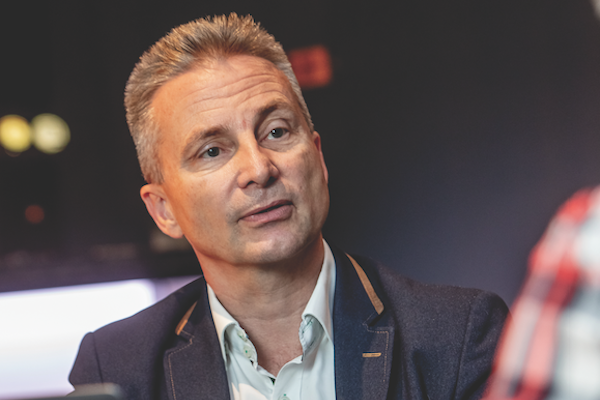
Pictured: Mr Box says businesses need to make sure employees connect to each other.
So, if you have a team and there's one person in that team that doesn't have great connections with the other people in the team, then the team will definitely not function as well.
You know, you don't need to be a scientist to figure that one out, but I think businesses focus more on what they can for the employee and, actually, before you even look at that, you've got to make sure that your employees actually do gel together, they do connect properly to each other.
Once that connection starts to fire, then they get the feeling of belonging, and once the belonging starts, you can build on top of that, and you can put all of the good things in that, a lot of companies are already trying.
For example, just giving people gym memberships or doing yoga classes in a company, you know, at lunchtime and stuff like that, will not fundamentally change whether people are happy within the company.
Research shows, actually, that the people that are happy are the ones that take advantage of that stuff. The people that aren't happy are already disengaged and therefore you can chuck free lunches, you can do all sorts of stuff, but it will not fundamentally change whether they're happy at that company or not.
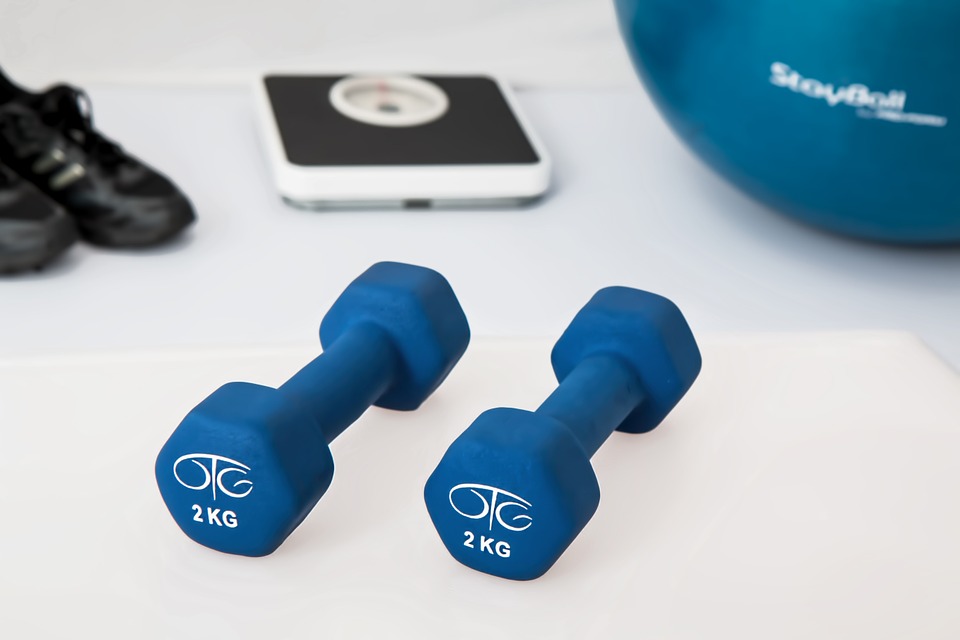
Pictured: Offering gym memberships to employees will not "fundamentally change" whether they are happy within the company, Mr Box says.
JB: They do, to a degree, but I think the company also sees it as their responsibility. I think the research that we've found on this, shows actually that, for example, 58% of men and 74% of women won't move a job if they don't feel that they're going to have good connections in the new place.
But then again, how do they find out whether they're going to have new connections? Jersey's small, it's quite easy – “Oh, I know such-and-such, a certain number of people that are in that new business” - they can probably gauge what it's going to be like, but it's actually very difficult to know whether a company's got great team spirit, a great culture.
Lots and lots of companies talk about great culture, but I'm a big believer that culture comes from the people within. The company can enable great culture, but actually, if the people don't gel and don't feel they belong, which is down to the way they connect with each other, not how many free beers or what stuff the company does, it is fundamentally the people in the company that make great culture.
So, the whole purpose of 'Vybbe' is to focus on how good that quality is. Do you have some challenges? Do you need to focus in certain areas? So, some teams maybe are firing on all cylinders and other teams aren't firing on all cylinders, and how do you know that?
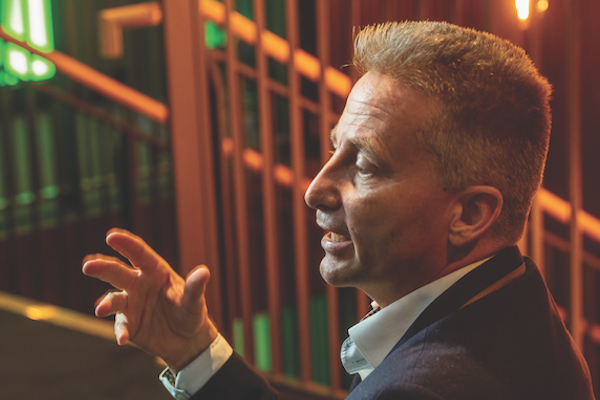
Pictured: Vybbe is about "getting people to interact with each other" and assess each other's connections.
JB: The app is designed to help people make those connections. So, the whole purpose of the programme, let's call it a programme, because the app helps you run the programme, so the programme itself was about getting people to interact with each other and, in effect, you're assessing each other's connections. How good is my connection with you? Is it good, is it bad?
JB: That is done through an emoji. So, it's an emotional piece. You're saying, “This person's connection makes me feel great,” or, “This person's connection makes me feel, yeah, pretty good,” or actually, “This connection isn't particularly strong and actually, you know, sadly, I try to avoid this person.” So, it is a very emotional-based process.
It takes about 20 seconds once a month and you assess different people each month and you get assessed by different people each month, and then it creates what we call your 'vybbe'. Over time, more and more people are giving their view of their quality of connection with you, and over an extended period of time, that view is pretty strong, actually, and it's pretty accurate, because it's lots and lots of people's views.
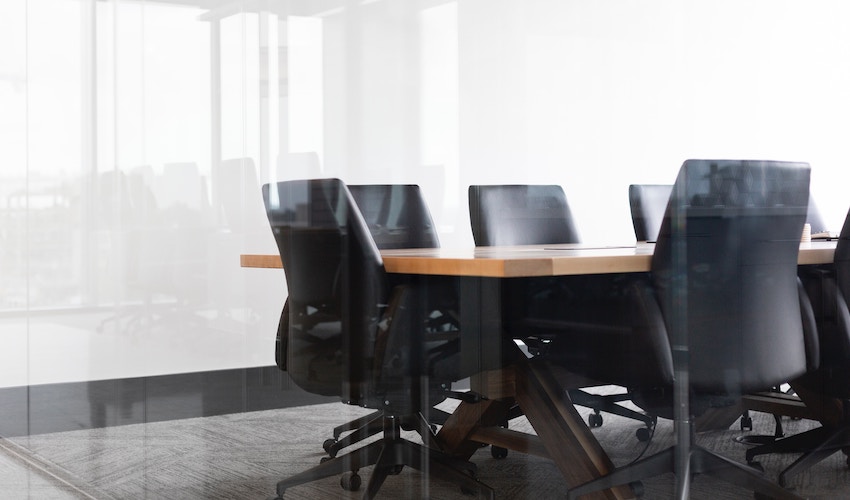
Pictured: Vybbe is "there to encourage [employees] to reach out".
JB: Yes, that's a good question that one, actually, especially if you're an organisation across, say, multiple floors, multiple buildings or even multiple locations.
Again, the programme itself is there to encourage you to reach out, so the app doesn't obviously tell you to reach out, but the purpose is, if don't know someone, part of this programme is to engage with people you don't know.
That can be difficult, you know, some people think, “Well, why am I being asked to assess Mary, for example, in a location that's hundreds of miles away from where I am?”
But what we've found, actually, both from the use that we've done over the last few years, but also clients that are using it, is that at the beginning it's a little bit hesitant, people are a little bit, you know, nervous and wary, but over time, actually, this reaching out piece becomes quite an important and fundamental part of the programme.
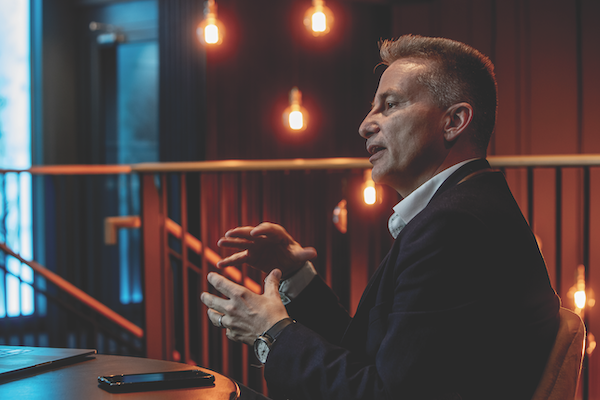
Pictured: "What we've found is that part of the app actually is a weekly wellbeing pulse."
JB: Yes, potentially, but because of the randomness of the selection process, you don't get clusters of people voting on one person. You know, it's spread around and it is an holistic view of you. So, positives and negatives are brought together to give you an holistic view, and then, over an extended period of time, that holistic view is pretty accurate.
Now, if you are getting one person, maybe their connections aren't particularly great, you know, there are multiple things you can do. Obviously, sometimes it's just the team they're in, it could be that the people around them bring them down, and therefore they project negativity, or it could be them, you know, it could be multiple things.
Also, what we've found is that part of the app actually is a weekly wellbeing pulse and it asks you every week how you feel, as well as people assessing you on a monthly basis. It is quite interesting, when people aren't feeling great themselves, that obviously their persona isn't as positive as it would be.
The fact that you understand they're not feeling great and you reach out as a management team, it helps you understand why maybe some people aren't, you know, firing on all cylinders, especially if they normally do, and then suddenly they're not. A lot of the time, that's not to do with work. A lot of the time, it's just outside factors that contribute to that.
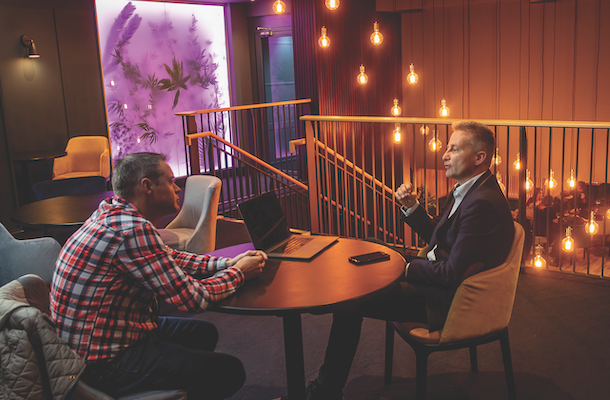
Pictured: Vybbe costs £1.50-£2 per person, per month.
JB: Yes, so this is a very effective tool, but we've priced it at a point where you're not going to decide whether or not you're going to use the app because of the cost. It's, you know, £1.50 roughly, £1.50-£2 per person, per month, so it's very, very cost effective.
So, you're either going to buy into what Vybbe helps you with or, you know, it's not something you want to do. Price is not going to be the decision whether or not you do that. As far as the business is concerned, we've got quite ambitious plans for it. We've got clients already dotted around North America, in the Channel Islands and in the UK, and we plan to expand beyond that.
We've got some interesting concepts where, as part of the whole Vybbe app, you actually get a company Vybbe as well. What that does is it holistically brings all the people of the business together, all their different vibes, and actually gives you an overall holistic view of the quality of connections within that organisation.
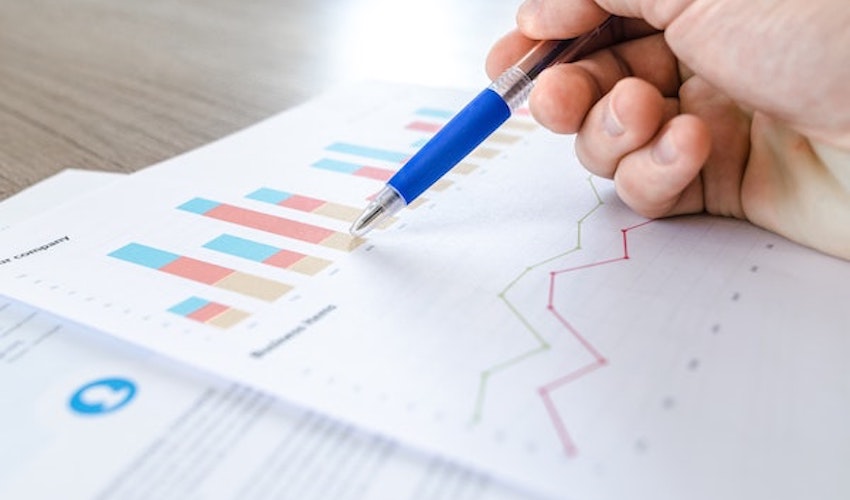
Pictured: In the future, a company's Vybbe - "an overall holistic view of the quality of connections within that organisation" - will be published.
It's something that we're going to start publishing in the future. Most of the companies that are already using it feel that that'd be a really positive recruiting and retention tool, because it shows a very holistic, very effective indicator of how good people get on within that company. If you're looking for a job right now, what's the one thing you can't actually find out? You can't find out how well people get on with each other in a company.
JB: Yes. Obviously, the companies would have to subscribe to that, you can't force them to do that, but everybody we've spoken to is quite keen to do that. We believe, over time, as we get more and more businesses, we'll be able to do the best vybbe-ing company in Jersey, in the UK, the US, Canada and so forth, and then ultimately who's got the best vybbe in the whole world.
It'd be super cool if we could do something like that. You know, everybody we speak to are very positive about this, so we think we can achieve that, but we need critical mass to make it effective.

Pictured: Vybbe is a Jersey-based company.
JB: So, we are a Jersey-based company and we are going to be North America-focussed and Channel Islands-focussed. They're the two key areas for us, because we've got people in both locations right now.
North America, they're a little bit ahead, I think, of Europe when it comes to embracing this type of stuff. That said, legislation's much stronger over here. It's quite interesting, isn't it? They're far more open in North America to initiatives like this, whereas Europe is far more about legal frameworks to improve the quality of wellbeing and happiness in the workplace.
We're hiring a CEO, so I'm not going to be the CEO, just the founder. So, he will start on 1 November, he is based in North America, and then we will start recruiting staff this side of the pond as well, as we start to build momentum.
This interview first appeared in Connect Magazine, which you can read by clicking here.
Comments
Comments on this story express the views of the commentator only, not Bailiwick Publishing. We are unable to guarantee the accuracy of any of those comments.